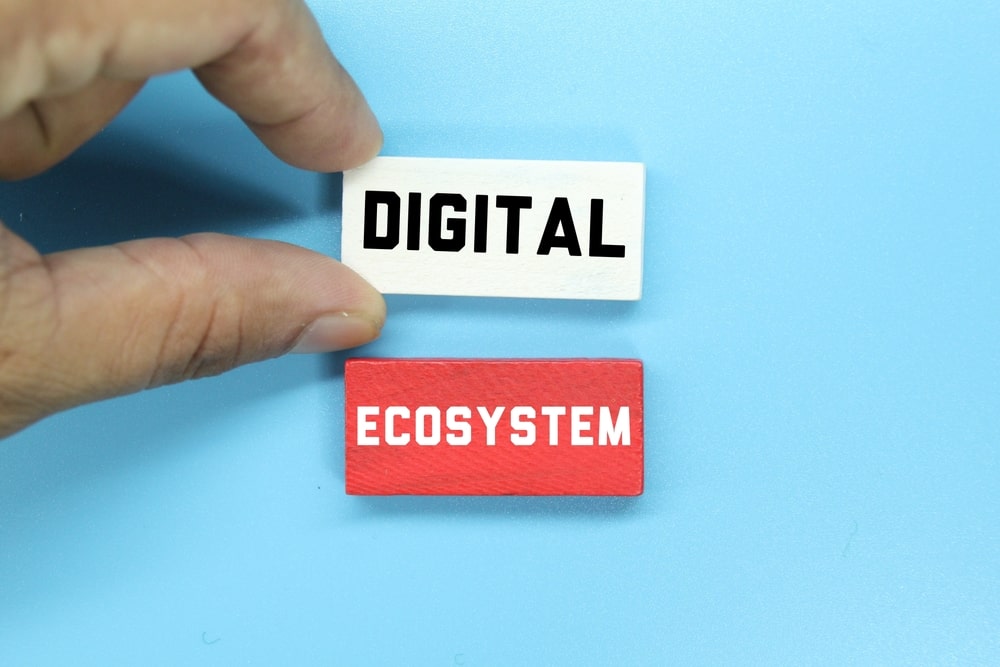As technology continues to advance, companies must adapt to stay relevant in the ever-changing digital landscape. Digital marketing has emerged as a powerful tool to connect with target audiences and drive business growth. In this article, we will explore the various components of the digital marketing ecosystem and how businesses can leverage its power to achieve their marketing goals.
Understanding the Digital Marketing Ecosystem
- Defining the digital marketing ecosystem: The digital marketing ecosystem encompasses all the digital channels, platforms, and strategies that businesses utilize to promote their products or services. It includes elements such as websites, search engines, social media, email marketing, content marketing, paid advertising, data analytics, and more.
- The interconnected nature of the ecosystem: Each component of the digital marketing ecosystem works together in synergy to create a comprehensive marketing strategy. For example, content marketing can drive traffic to a website, which can be further optimized using search engine optimization (SEO) techniques. Social media platforms can amplify brand awareness and engagement, while email marketing nurtures customer relationships.
Harnessing the Power of the Digital Marketing Ecosystem
- Developing a data-driven approach: The ecosystem generates vast amounts of data, providing valuable insights into customer behavior, preferences, and trends. By analyzing this data, businesses can make informed decisions and optimize their marketing strategies for better results. Utilizing tools such as Google Analytics, businesses can measure website traffic, track conversions, and gain a deeper understanding of their target audience.
- Leveraging social media platforms: Social media has become an integral part of the digital marketing ecosystem, offering businesses the opportunity to reach a vast audience and engage with them directly. By creating compelling content, utilizing targeted advertising, and fostering meaningful conversations, businesses can build brand loyalty, drive website traffic, and generate leads.
- Embracing content marketing: Content marketing plays a crucial role in the marketing ecosystem, enabling businesses to provide value to their audience while establishing thought leadership. By creating relevant and engaging content, such as blog posts, videos, podcasts, and infographics, businesses can attract and retain customers, boost search engine rankings, and enhance brand reputation.
- Maximizing search engine optimization (SEO): Search engines serve as gatekeepers to the digital world, and optimizing website content for search engines is essential for organic visibility. By employing SEO strategies, such as keyword research, on-page optimization, and link building, businesses can improve their website’s search engine rankings, increase organic traffic, and drive conversions.
- Utilizing paid advertising: While organic reach is valuable, paid advertising provides an additional boost to reach specific target audiences and generate quick results. Platforms like Google Ads, Facebook Ads, and Instagram Ads offer businesses the ability to create highly targeted campaigns, drive website traffic, and increase conversions through strategic ad placements.
Overcoming Challenges and Future Trends
- Keeping up with technological advancements: The digital marketing landscape is constantly evolving, with new technologies and platforms emerging regularly. Businesses must stay updated with the latest trends and adapt their strategies accordingly to remain competitive and capitalize on emerging opportunities.
- Ensuring privacy and data security: With the increasing emphasis on data privacy, businesses must prioritize securing customer data and complying with relevant regulations, such as the General Data Protection Regulation (GDPR). Building trust with customers and implementing robust security measures are crucial for long-term success.
- Embracing artificial intelligence (AI) and automation: AI and automation have the potential to revolutionize digital marketing by enabling personalized experiences, streamlining processes, and improving campaign targeting. Businesses can leverage AI-powered chatbots, recommendation engines, and automated email marketing to enhance customer engagement and drive conversions.
- Harnessing the power of video marketing: Video content has gained immense popularity in the digital space, with platforms like YouTube and TikTok dominating the attention of online users. Businesses that incorporate video marketing into their digital strategies can captivate audiences, tell compelling stories, and create shareable content that drives brand awareness and conversions.
Conclusion
This presents a vast array of opportunities for businesses to connect with their target audiences, drive growth, and stay ahead in the digital age. By understanding and harnessing the power of the digital marketing ecosystem, businesses can unlock new avenues for success, foster meaningful customer relationships, and achieve their marketing objectives in a dynamic and competitive landscape. Embracing data-driven strategies, leveraging social media platforms, embracing content marketing, maximizing SEO, utilizing paid advertising, and staying abreast of emerging trends will empower businesses to thrive in the digital realm.


